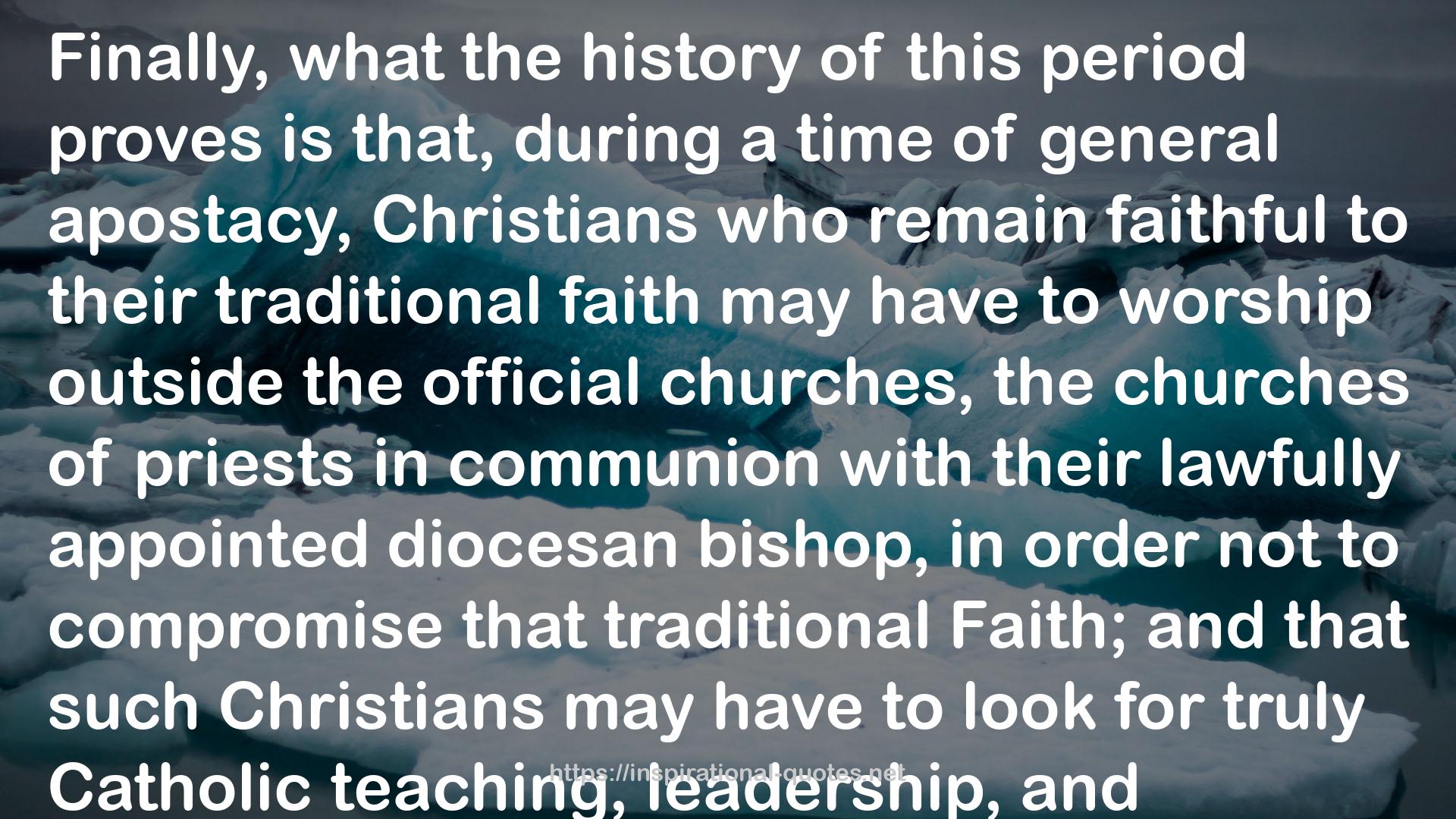1
" Finally, what the history of this period proves is that, during a time of general apostacy, Christians who remain faithful to their traditional faith may have to worship outside the official churches, the churches of priests in communion with their lawfully appointed diocesan bishop, in order not to compromise that traditional Faith; and that such Christians may have to look for truly Catholic teaching, leadership, and inspiration not to their diocesan bishop, not to the bishops of their country as a body, not to the bishops of the world, not even to the Roman Pontiff, but to one heroic confessor when the other bishops and the Roman Pontiff might have repudiated or even excommunicated.
And how would they recognize that this solitary confessor was right and the Roman Pontiff and body of the episcopate (not teaching infallibly) were wrong? The answer is that they would recognize in the teaching of the confessor what the faithful of the fourth century recognized in the teaching of Athanasius: the one true Faith into which they had been baptized, in which they had been catechized, and which their Confirmation gave them the obligation of upholding. In no sense whatsoever can such fidelity to tradition be compared to the Protestant practice of private judgment. The fourth century Catholic traditionalists upheld Athanasius in his defense of the Faith that had been handed down, the Protestant uses his private judgment to justify a breach with the traditional Faith. "
― Michael Treharne Davies ,
